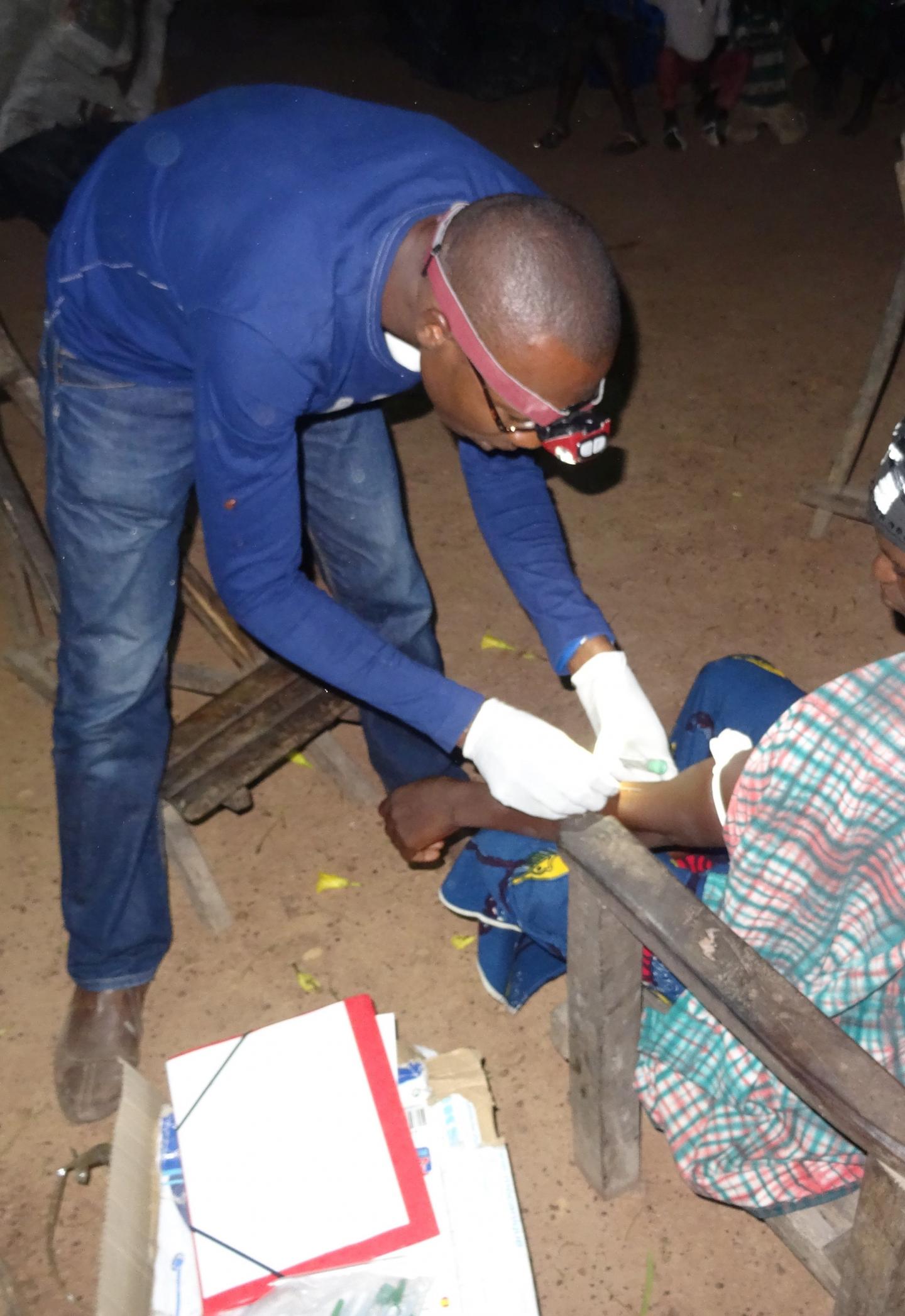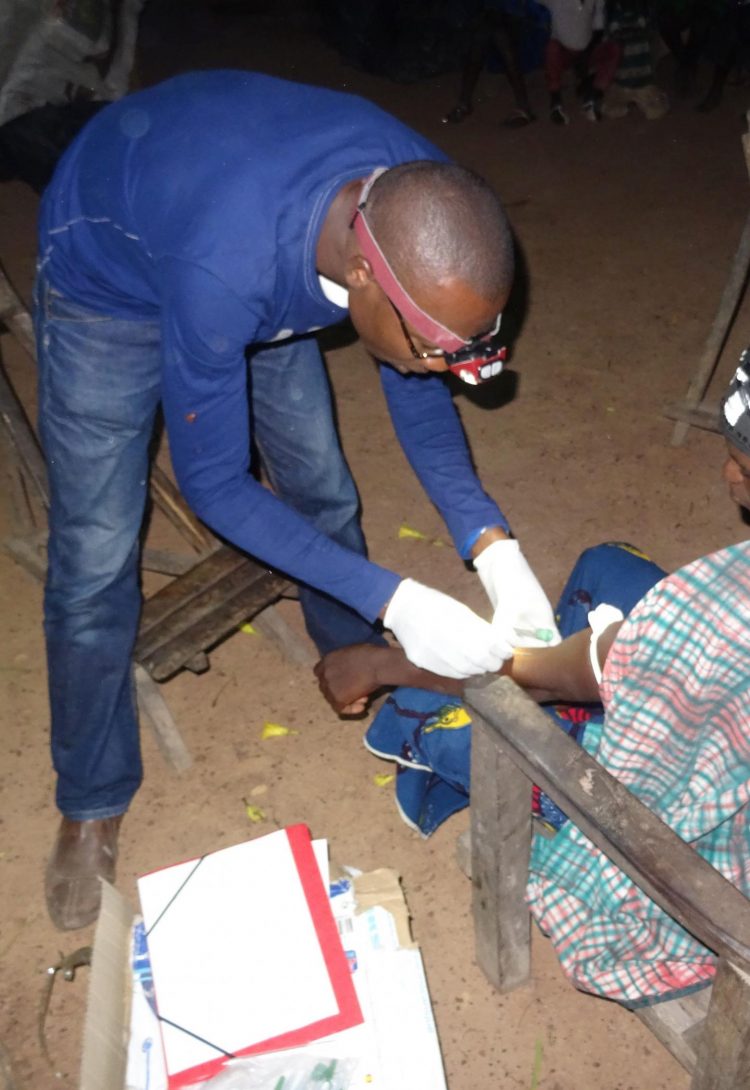
Credit: Gary J. Weil (CC-BY 4.0)
The Global Program to Eliminate Lymphatic Filariasis delivers mass drug administration to 500 million people each year, and adverse events are common following treatment. Now, researchers have reported in PLOS Neglected Tropical Diseases that certain changes in gene expression are associated with these adverse events.
Lymphatic filariasis (LF) is a neglected tropical disease caused by the mosquito-borne parasites Wuchereria bancrofti, Brugia malayi, and B. timori. Mass drug administration (MDA) to prevent LF and reduce transmissions generally rely on annual treatment with combinations of two or three drugs. Although treatment is safe, transient mild to moderate systemic adverse events–such as joint pain, fever, rash, or cough– are common in individuals with circulating microfilariae in the blood. Since these adverse events (AEs) are quite uncommon in uninfected individuals, they are believed to be triggered by host responses to dying filarial worms rather than the drugs themselves.
In the new work, Britt Andersen of Washington University School of Medicine, USA, and colleagues studied blood samples from 95 individuals being treated for LF. Nine of these participants experienced moderate AEs, 24 had mild AEs, and 62 had no AEs. Levels of filarial antigens and immune proteins, as well as DNA transcription signatures were studied.
The researchers found that levels of filarial antigens increased after treatment in individuals with AEs, and this suggests that AEs are triggered nu host responses to dying parasites. AEs were associated with elevations in serum levels of certain immune molecules called cytokines. Moreover, when the team compared patterns of gene expression in white blood cells between people with moderate AEs and those without AEs, they found 744 genes upregulated in people with AEs, including many genes involved in immune signaling.
“Improved understanding of the pathogenesis of adverse events may lead to improved management, increased MDA compliance, and accelerated LF elimination,” the researchers say.
###
In your coverage please use this URL to provide access to the freely available paper: http://journals.
Citation: Andersen BJ, Rosa BA, Kupritz J, Meite A, Serge T, et al. (2019) Systems analysis-based assessment of post-treatment adverse events in lymphatic filariasis. PLOS Neglected Tropical Diseases 13(9): e0007697. https:/
Funding: This work was supported in part by grant GH5342 from the Bill and Melinda Gates Foundation and by a grant from the Foundation for Barnes-Jewish Hospital. The funders had no role in study design, data collection and analysis, decision to publish, or preparation of the manuscript.
Competing Interests: The authors have declared that no competing interests exist.
Media Contact
Gary J. Weil
[email protected]
Related Journal Article
http://dx.





